Photographer’s journal: A look at the migrant crisis in Lesbos, Greece
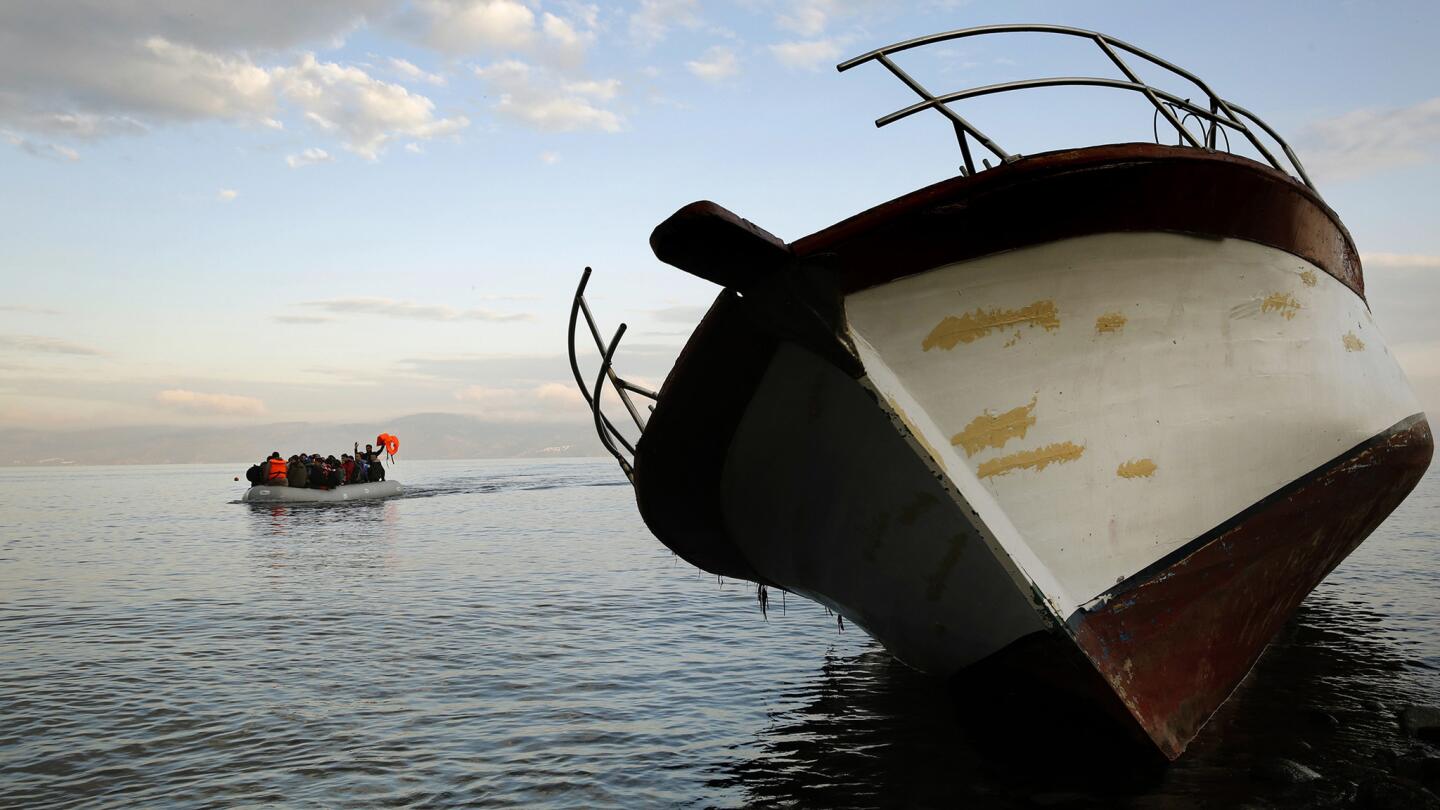
More than 700,000 migrants have crossed the Aegean Sea from Turkey to Greece, many paying smugglers $1,000 each or more, for a chance to resettle in Europe. Many of the boats used, large or small, are abandoned on the Greek shores.
(Carolyn Cole / Los Angeles Times)The United Nations High Commissioner for Refugees estimates that 700,000 migrants have already arrived on the Greek island of Lesbos and that as many as 5,000 more will come ashore each day between now and February.
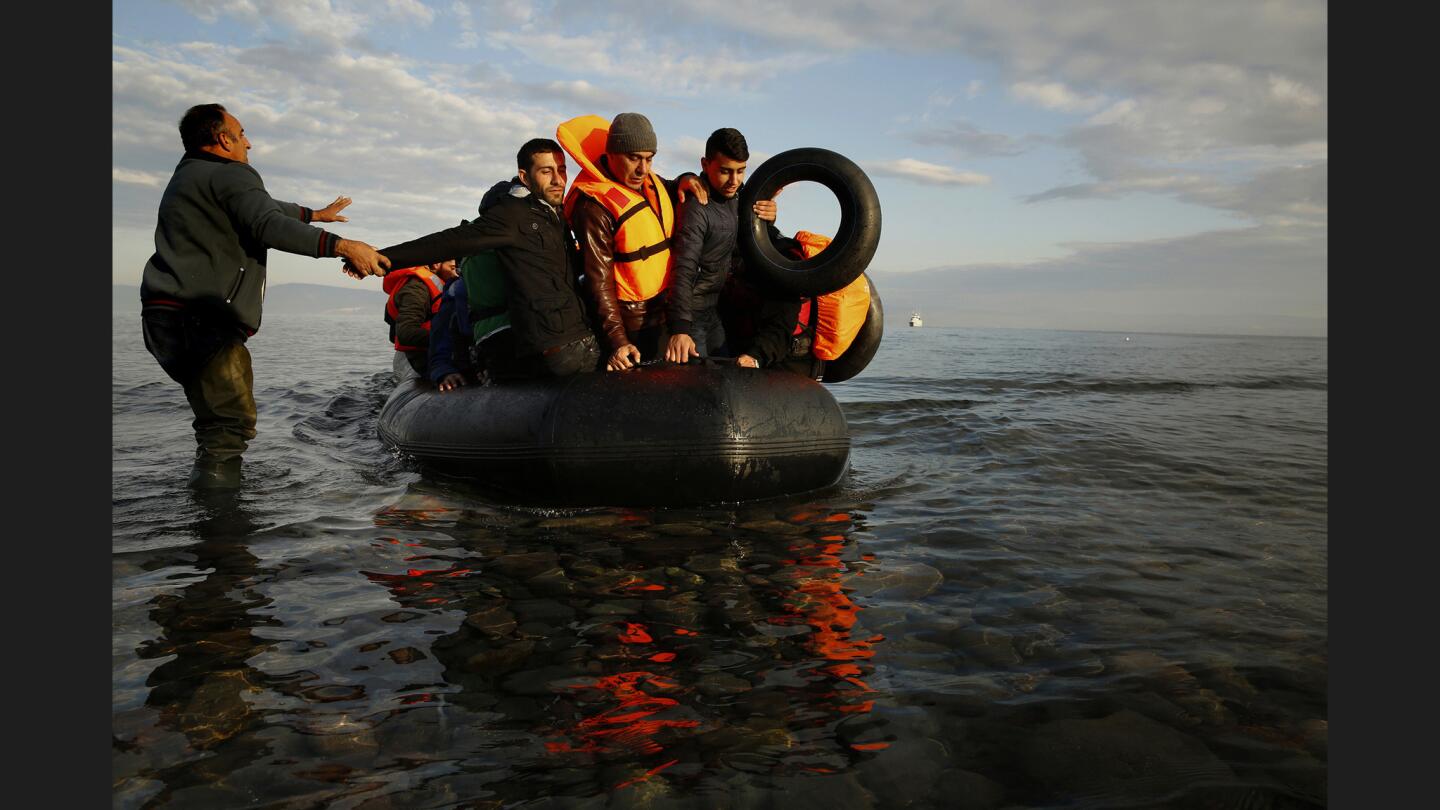
Refugees arrive, some not wearing life jackets, after crossing the Aegean Sea. A volunteer encourages this group to remain calm as they arrive at the shore of Lesbos on Nov. 10
(Carolyn Cole / Los Angeles Times)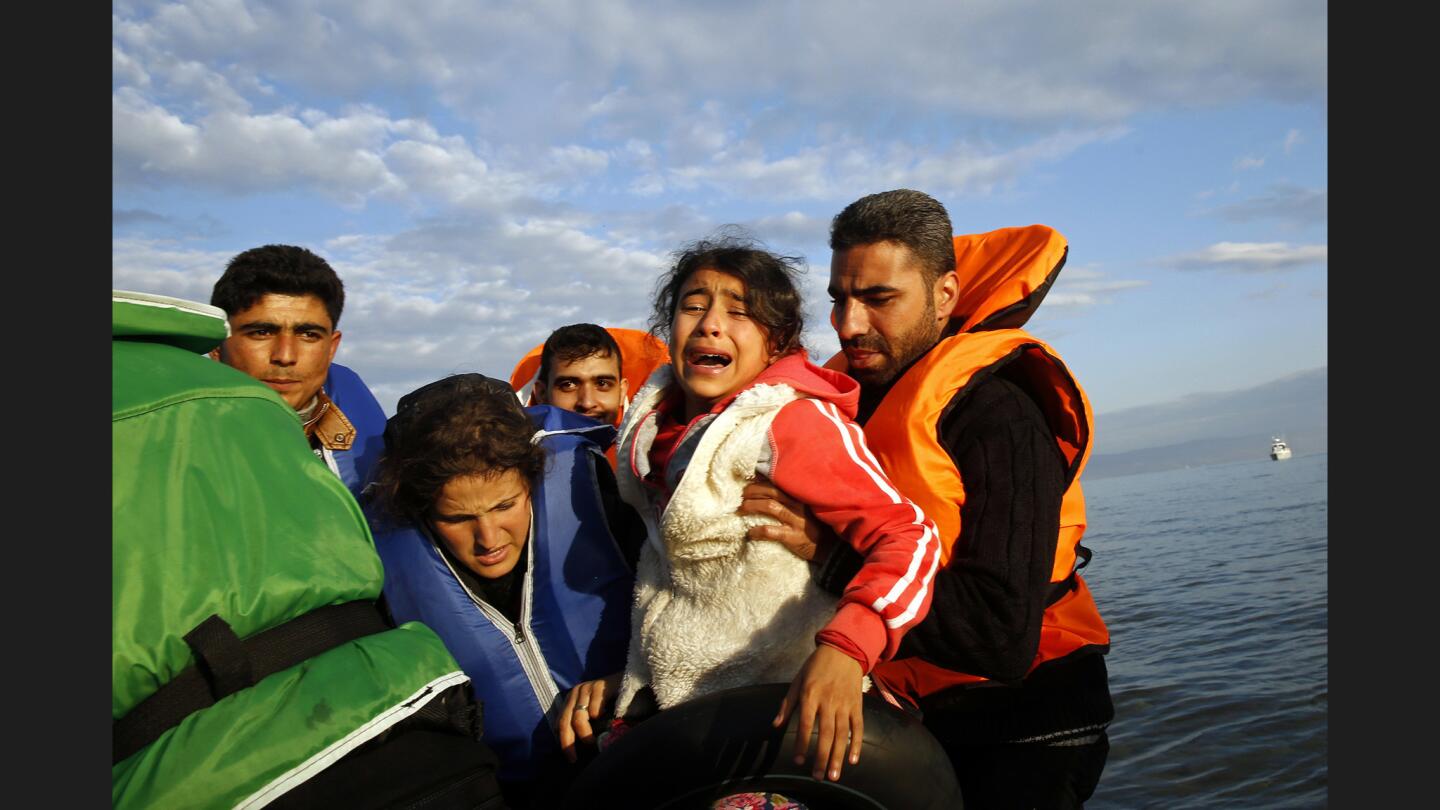
A girl wearing a rubber tire as a makeshift life jacket reacts as she arrives with her family Nov. 10 on Lesbos.
(Carolyn Cole / Los Angeles Times)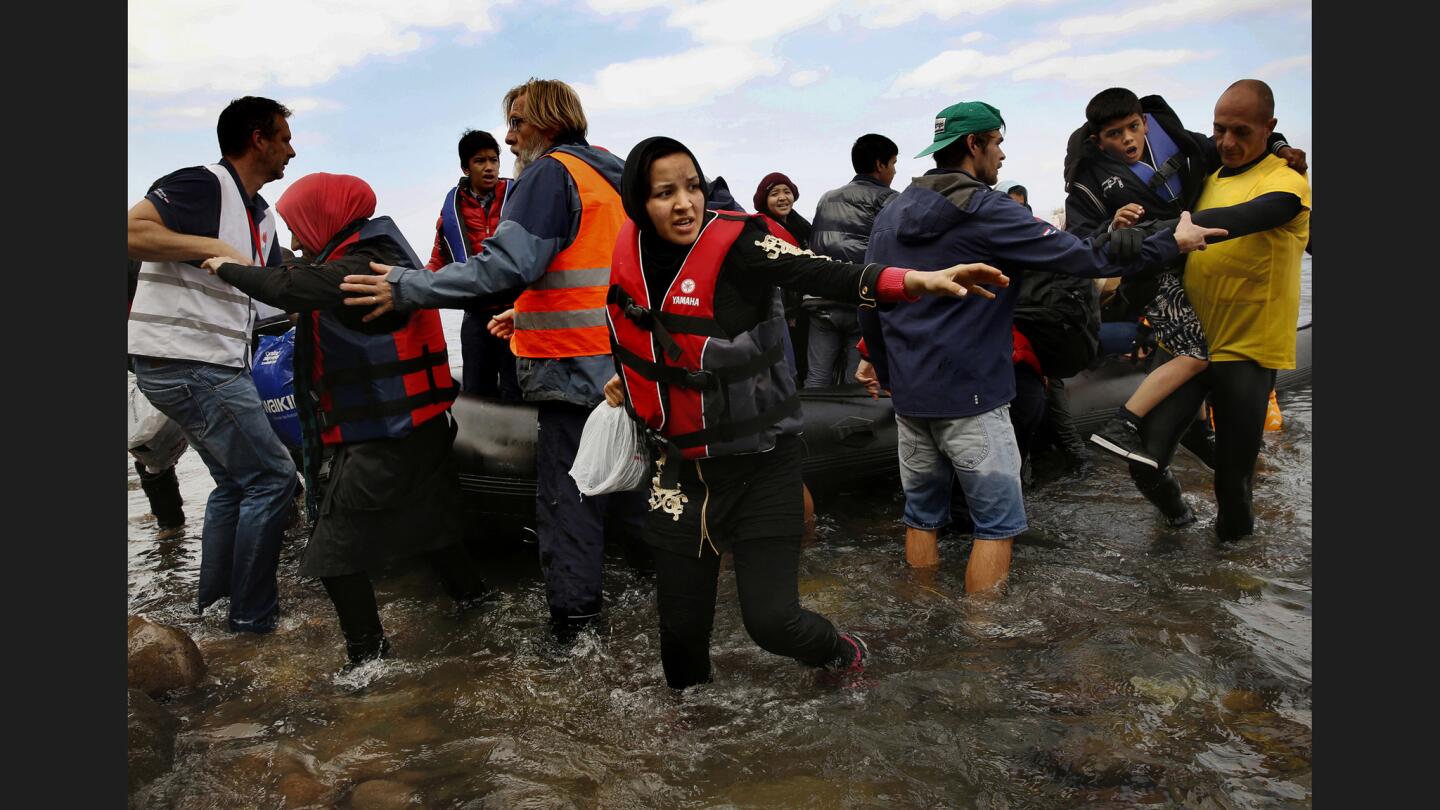
Migrants are helped off rubber rafts as they arrive on Lesbos. Women and children are helped off first, followed by the men.
(Carolyn Cole / Los Angeles Times)Advertisement
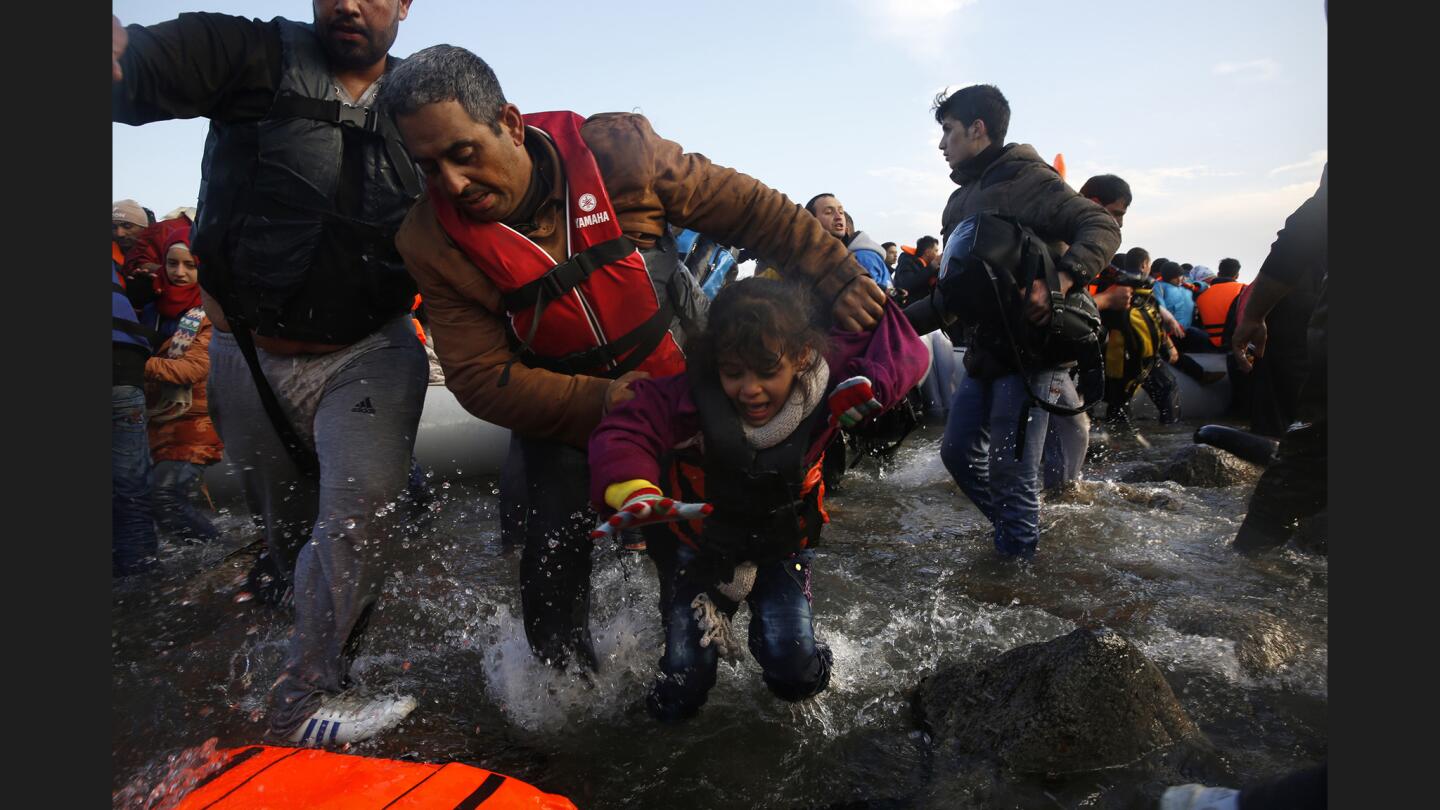
A Syrian man helps his young daughter cross the rocks as they land on Lesbos. Many migrants don’t know how to swim, which makes the crossing much more frightening.
(Carolyn Cole / Los Angeles Times)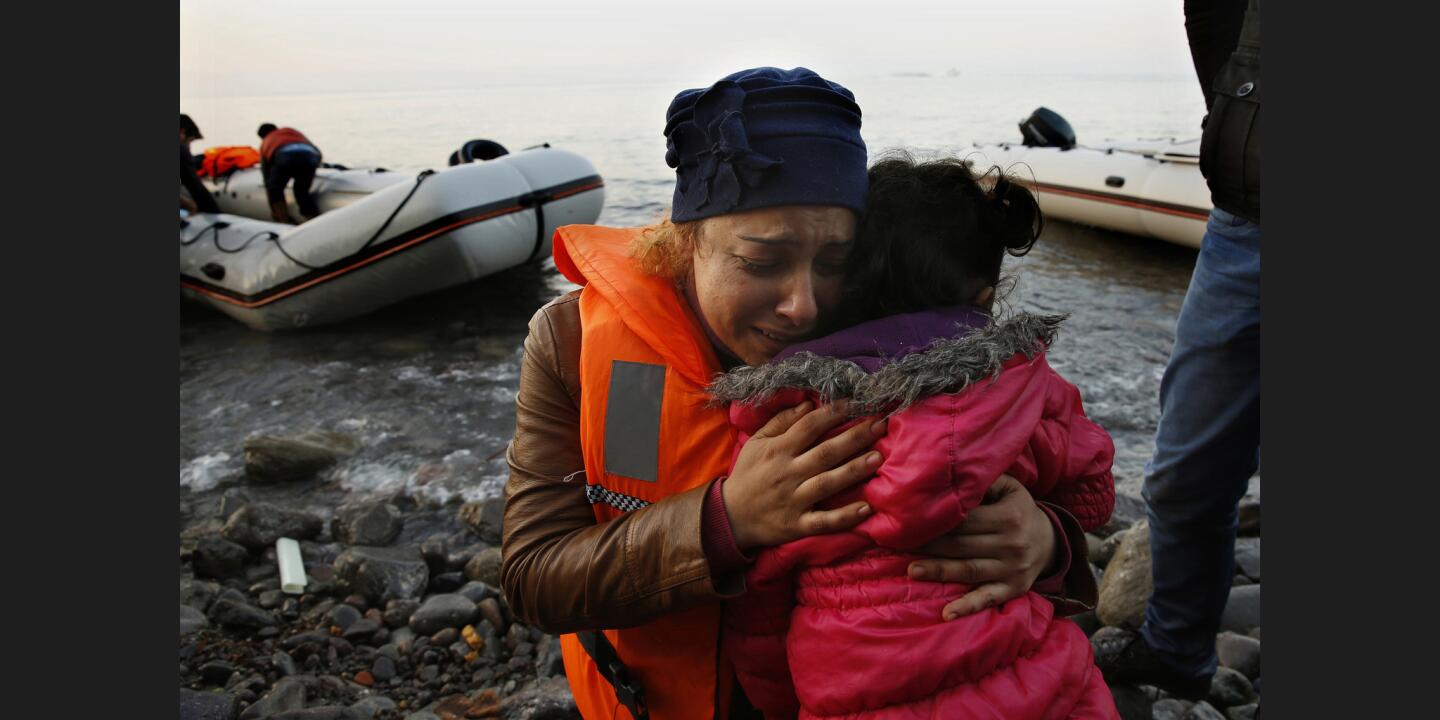
Amal Ahmad weeps as she hugs her daughter Lavin, 3, when they reach the shore on Lesbos. Amal, her husband and three daughters crossed together in a rubber raft with about 40 people. The smugglers made them throw all their bags overboard so that more people could fit in the boat. “I was afraid for my daughters,” said Amal.
(Carolyn Cole / Los Angeles Times)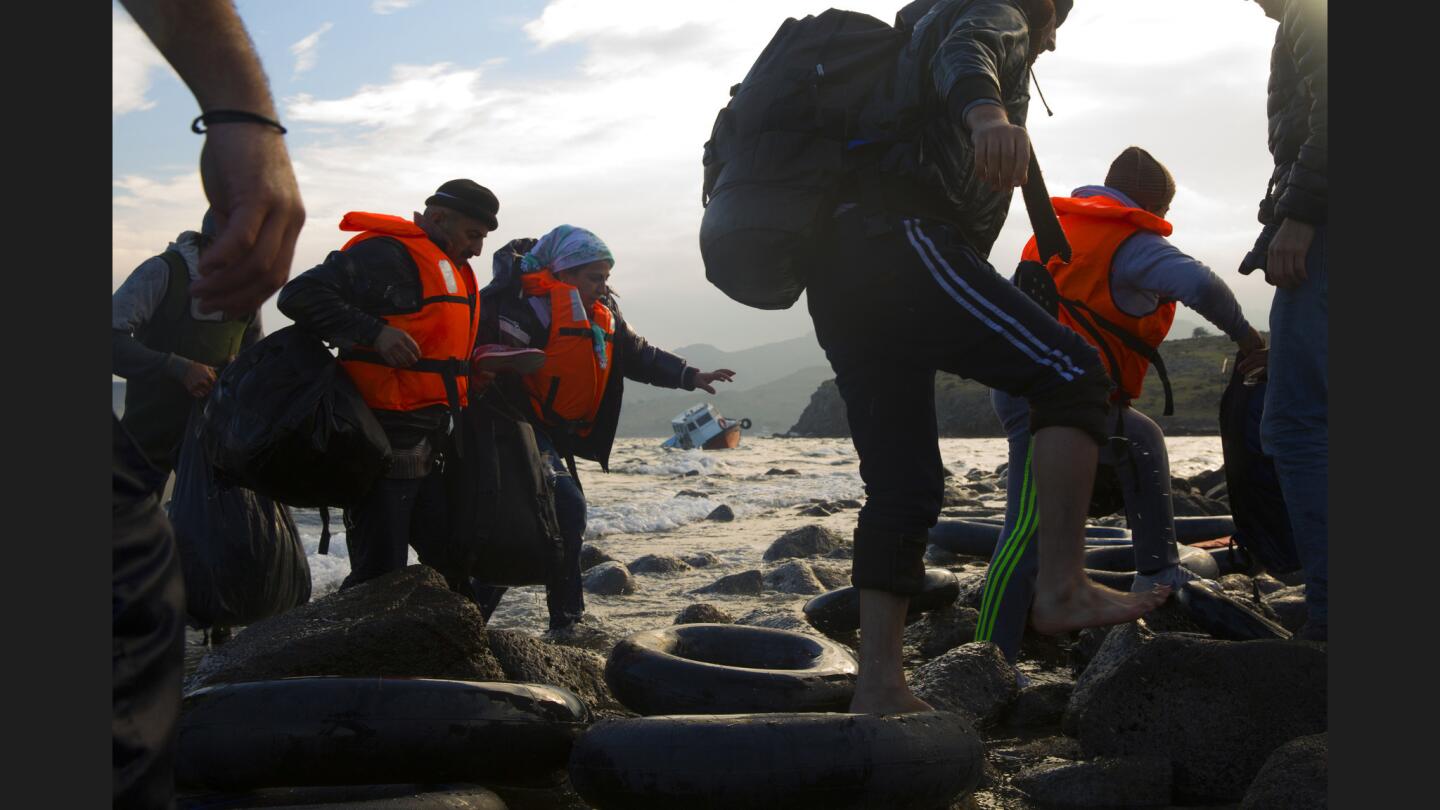
Migrants arrive on Lesbos after the ship in which they were traveling capsized.
(Carolyn Cole / Los Angeles Times)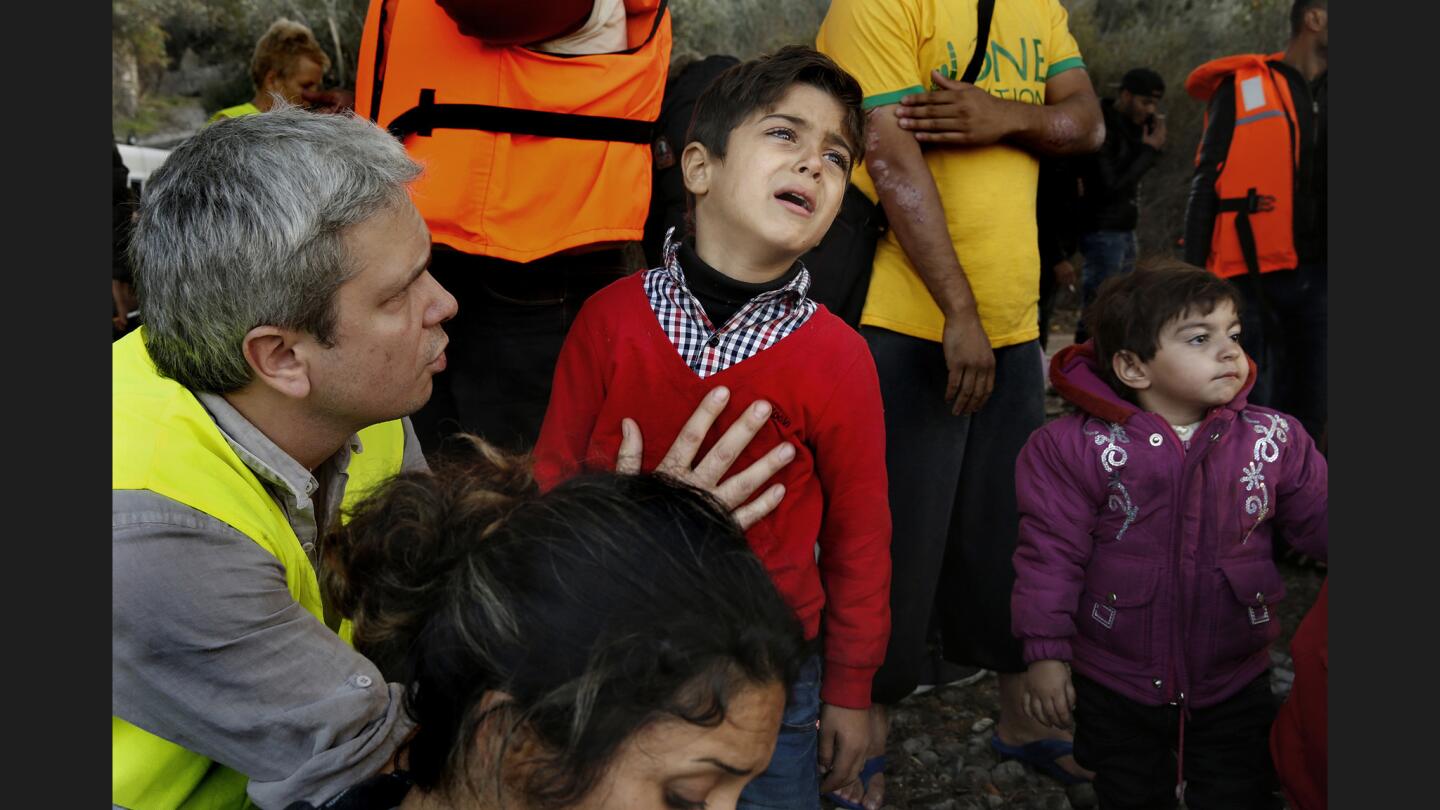
An aid worker tries to calm a boy who had just arrived with his family on Lesbos.
(Carolyn Cole / Los Angeles Times)Advertisement
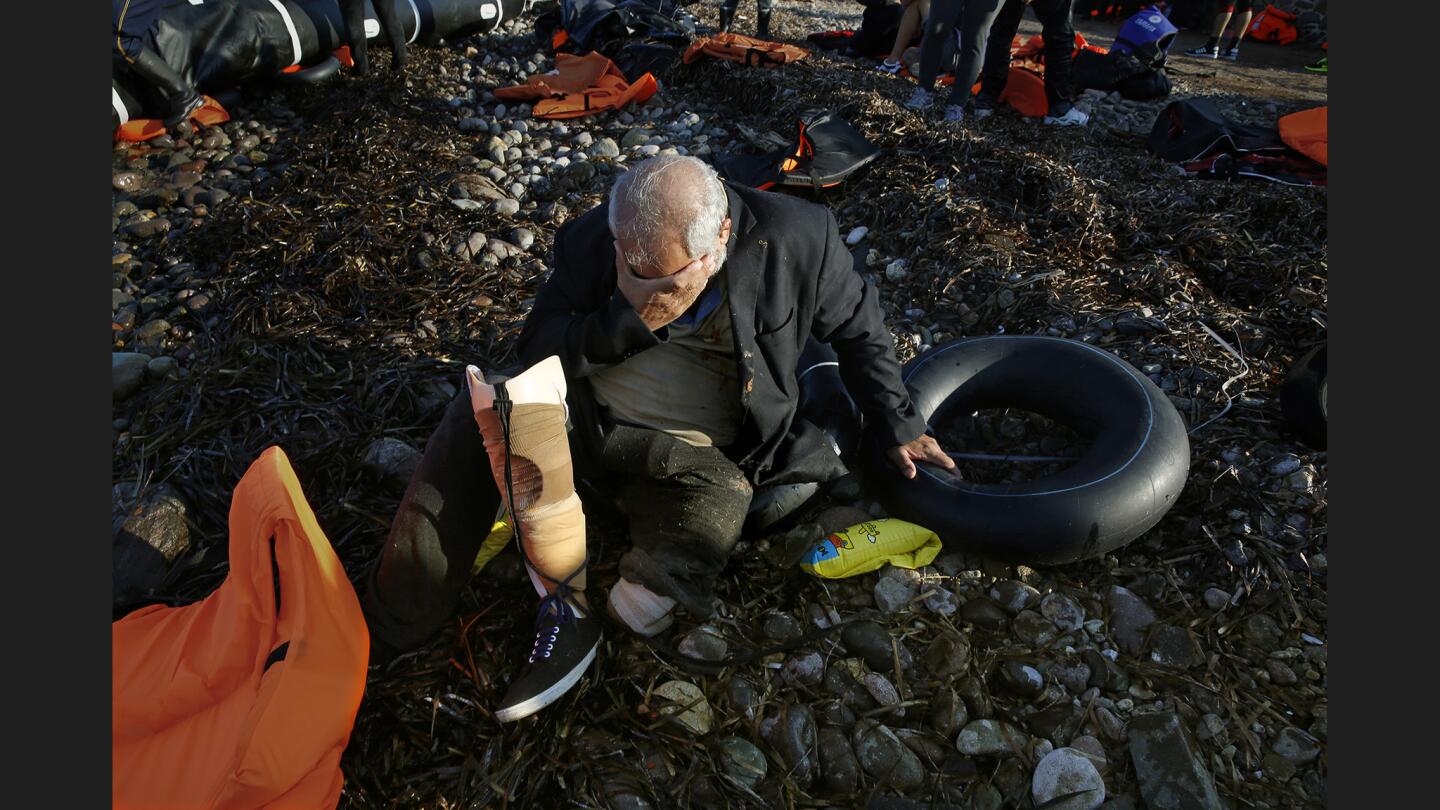
A Syrian man who made the crossing without family members sits on the beach with his prosthetic leg at his side.
(Carolyn Cole / Los Angeles Times)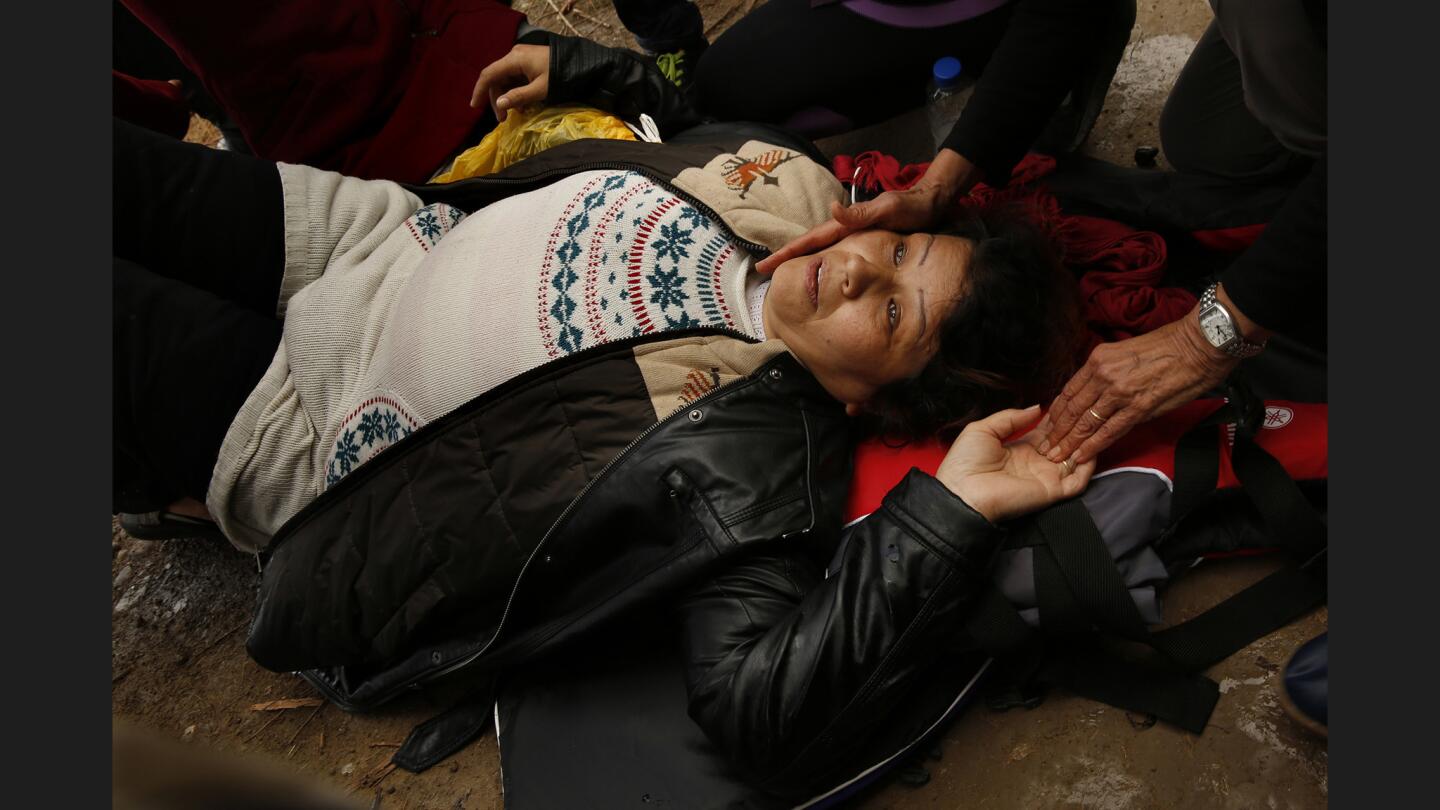
Upon arrival on the shores of Greece, a woman is overcome with shock from the stress of crossing by rubber raft.
(Carolyn Cole / Los Angeles Times)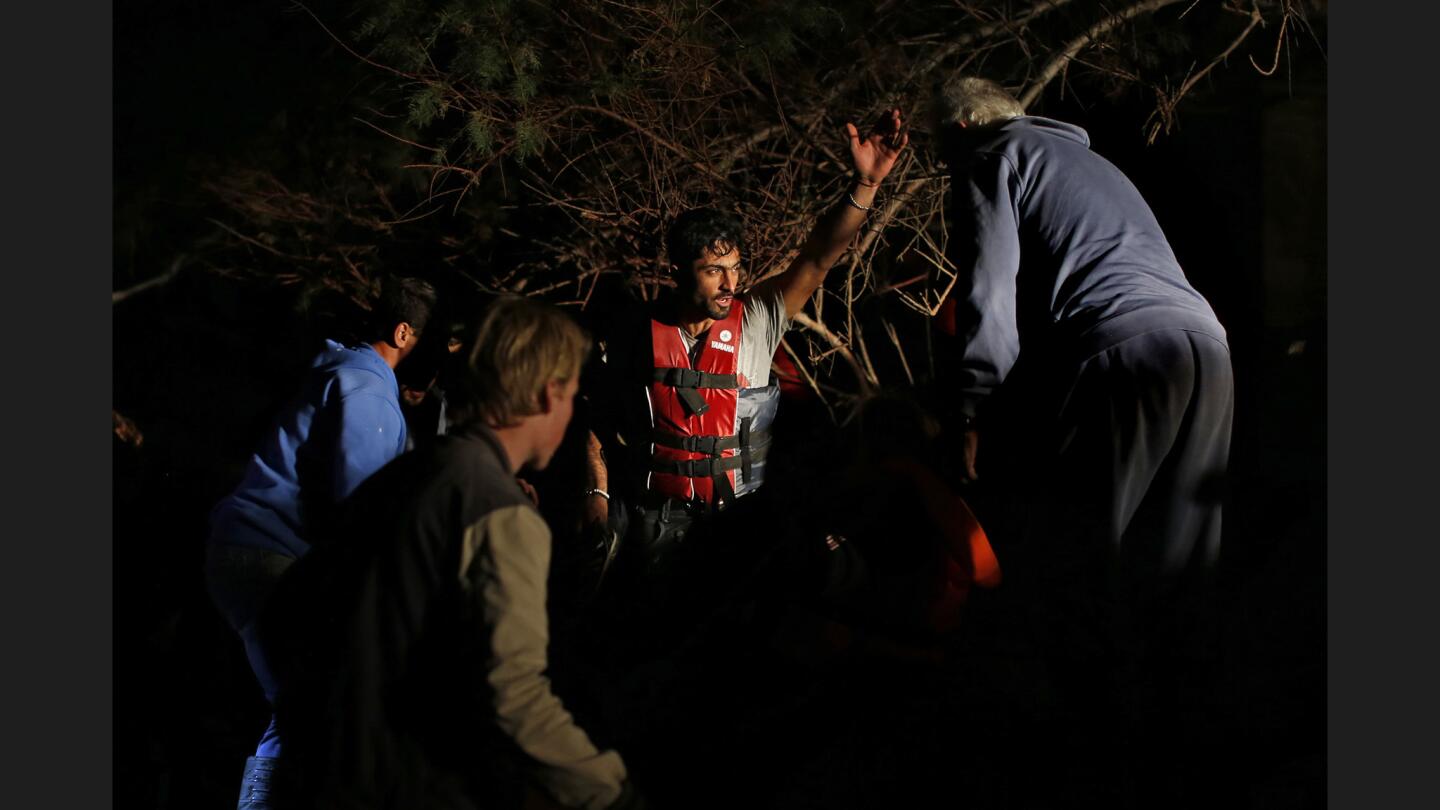
A migrant waves after a nighttime arrival by raft from Turkey as volunteers wait to assist. Campfires are built along the shore to guide the rafts toward beaches where aid workers are stationed.
(Carolyn Cole / Los Angeles Times)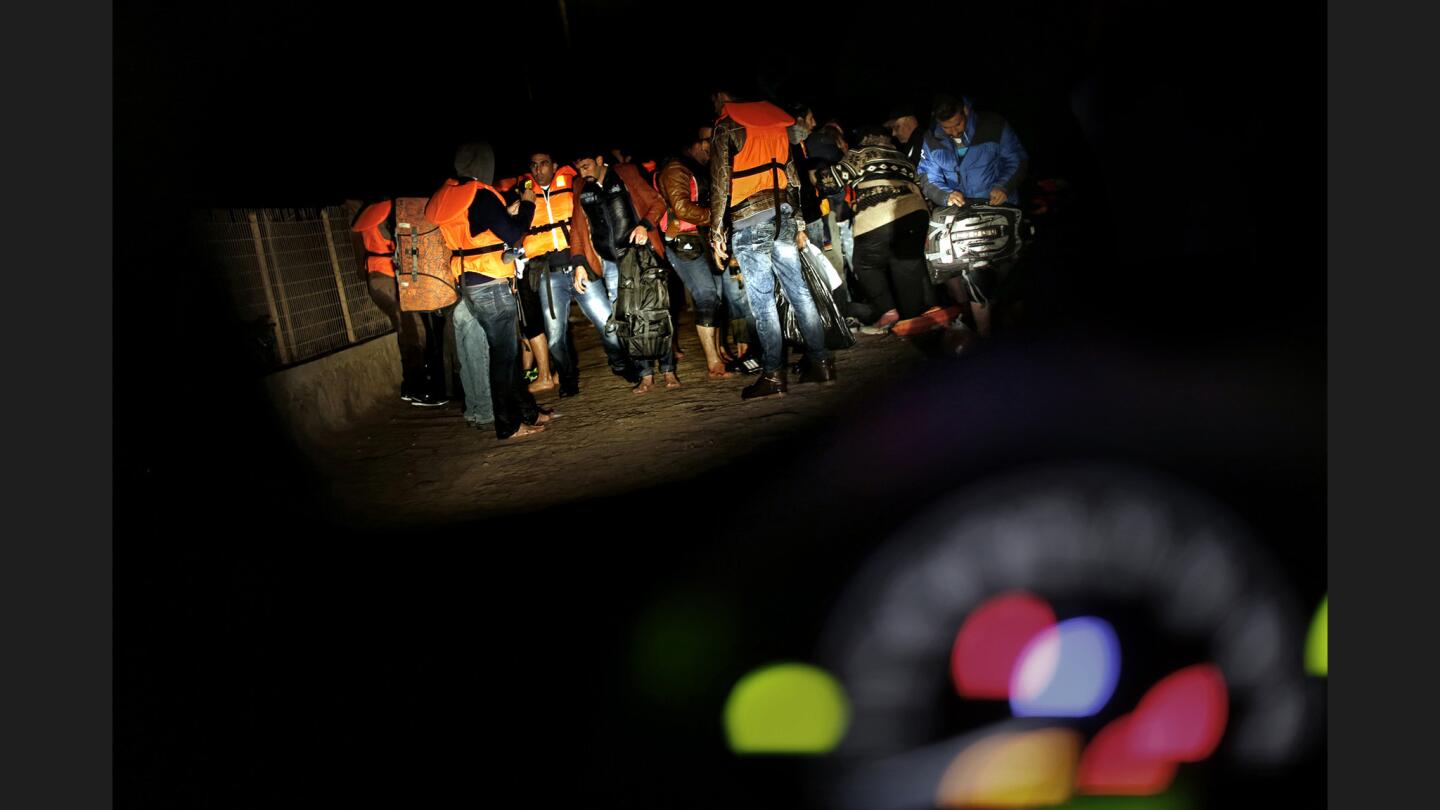
Still in life jackets, barefoot and wet, migrants from Turkey stand in the road after arriving in Greece.
(Carolyn Cole / Los Angeles Times)Advertisement
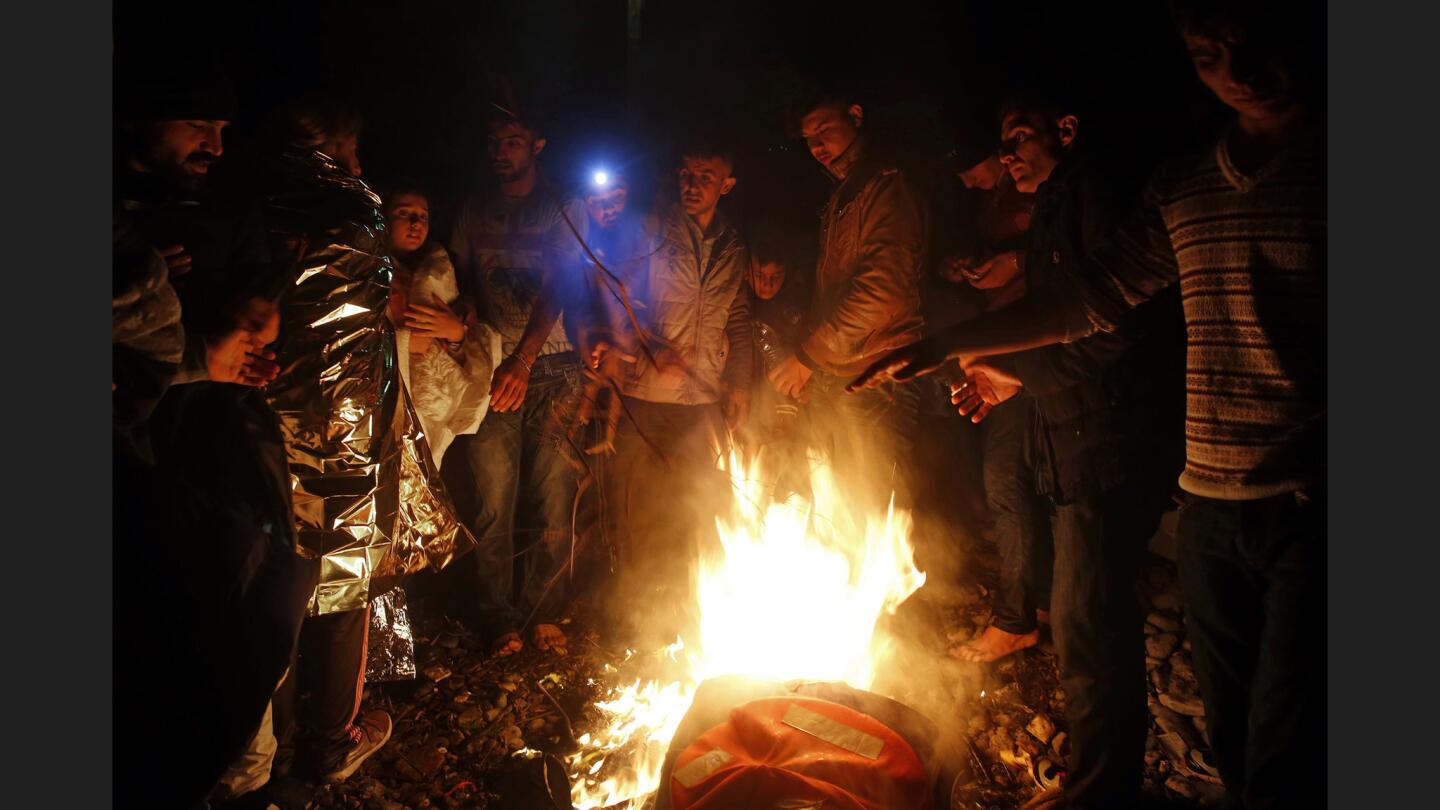
Migrants gather around a campfire on the shore of Lesbos after arriving from Turkey by raft.
(Carolyn Cole / Los Angeles Times)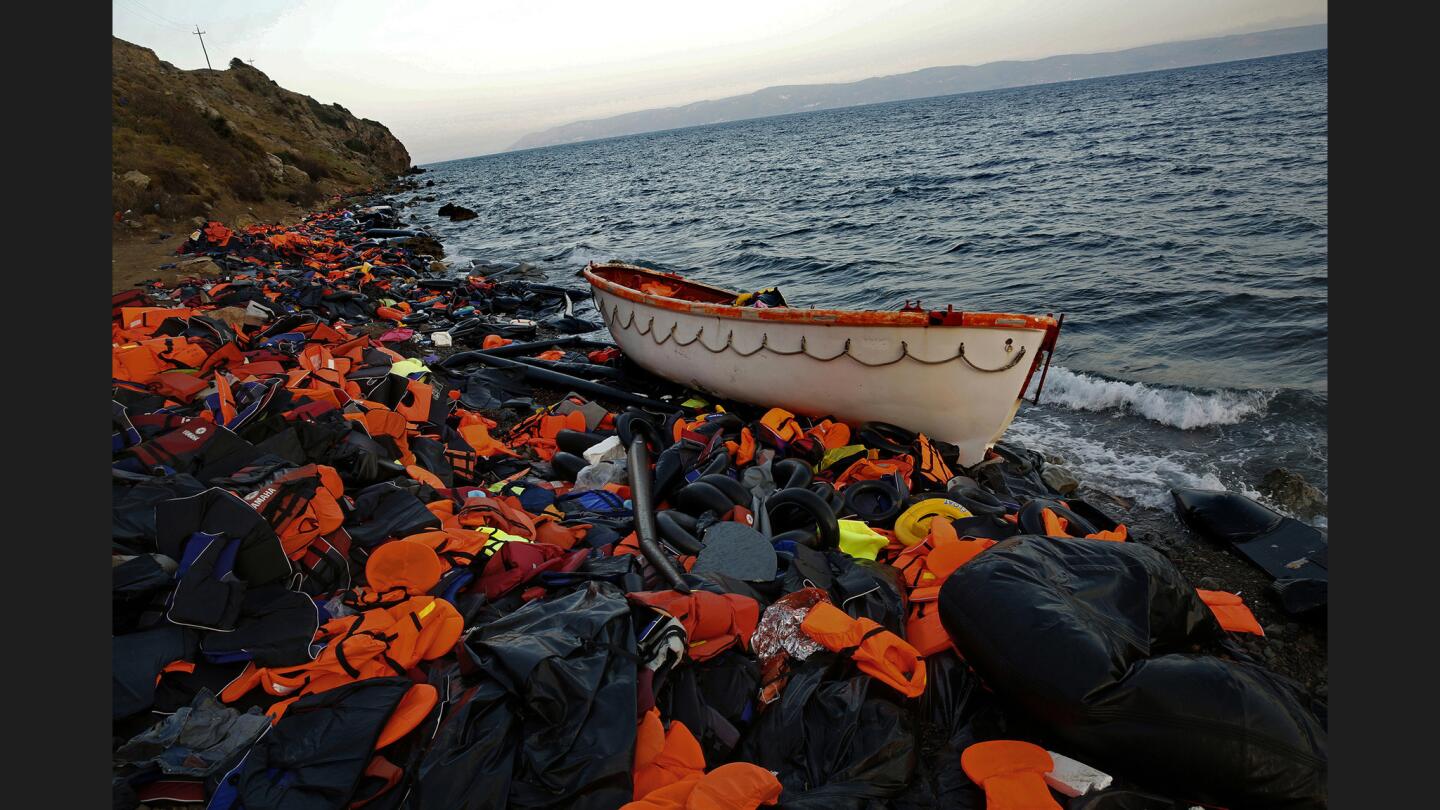
Life jackets, rubber boats and other debris left by arriving migrants litter the coastline of Lesbos.
(Carolyn Cole / Los Angeles Times)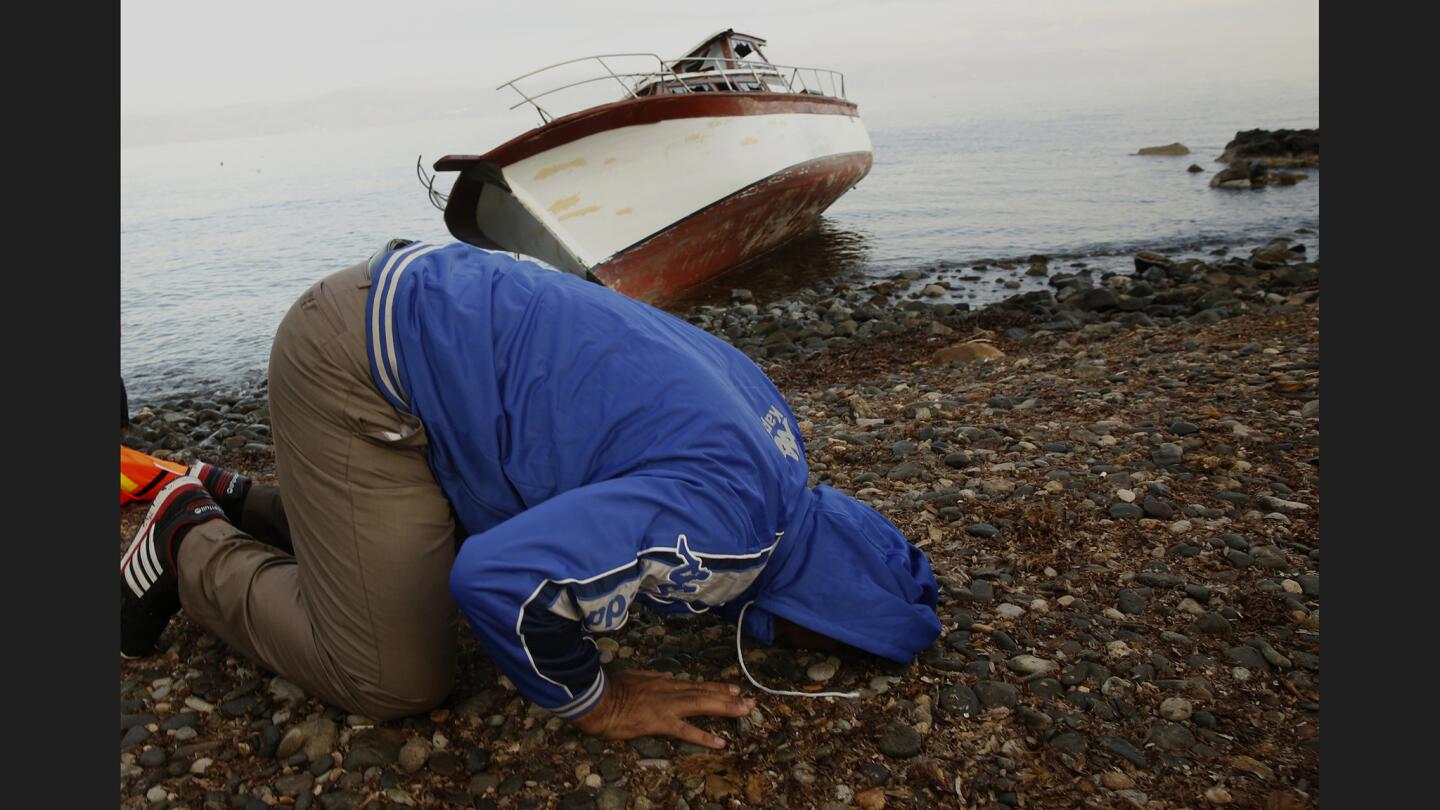
A Syrian man prays on the shore after arriving by raft from Turkey.
(Carolyn Cole / Los Angeles Times)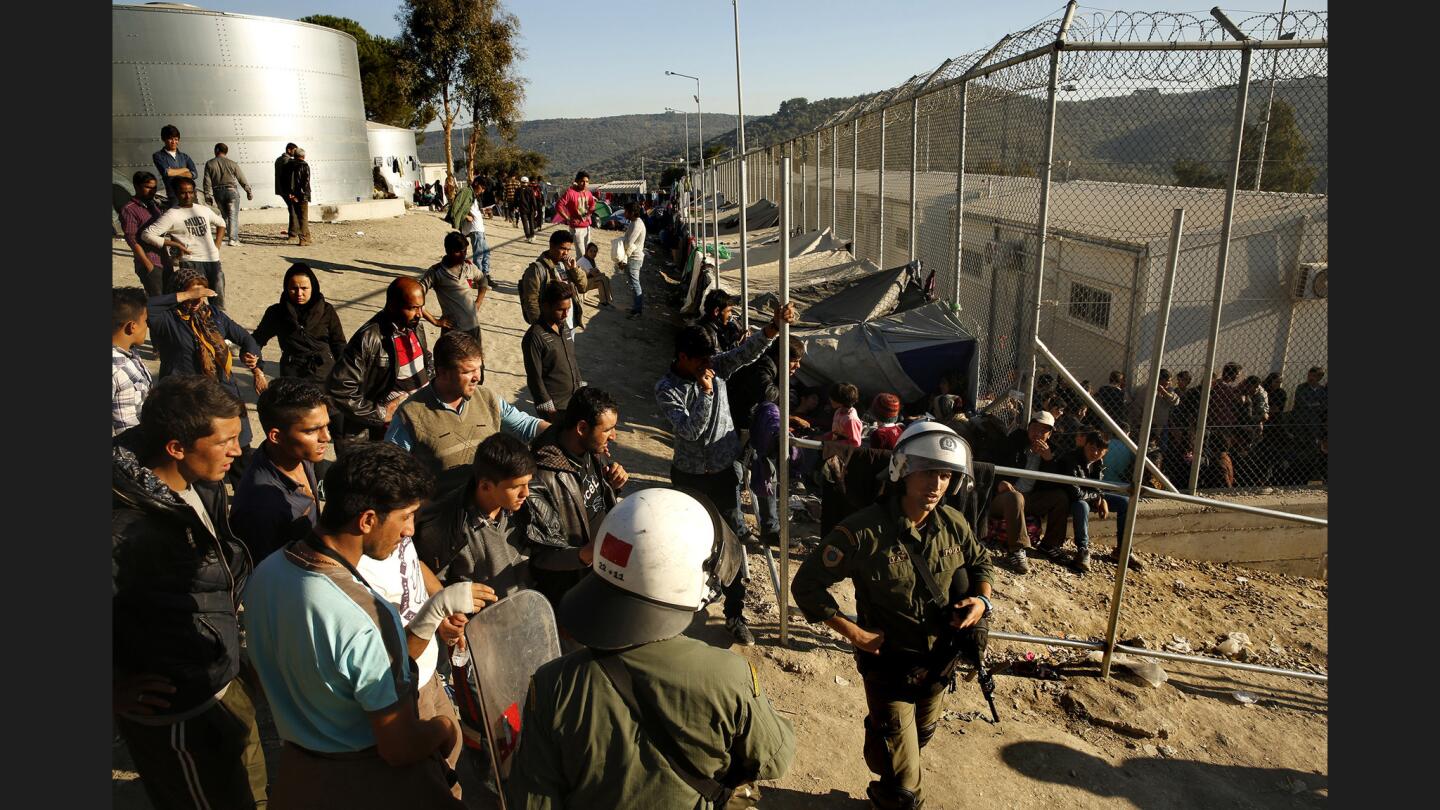
Greek riot police patrol as new immigrants try to register at the Moria refugee camp on Lesbos. For those who can’t afford a ferry ticket to Athens, they must wait, which can take a week or longer. The camp has no bathroom facilities and only two water sources for about 3,000 people.
(Carolyn Cole / Los Angeles Times)Advertisement
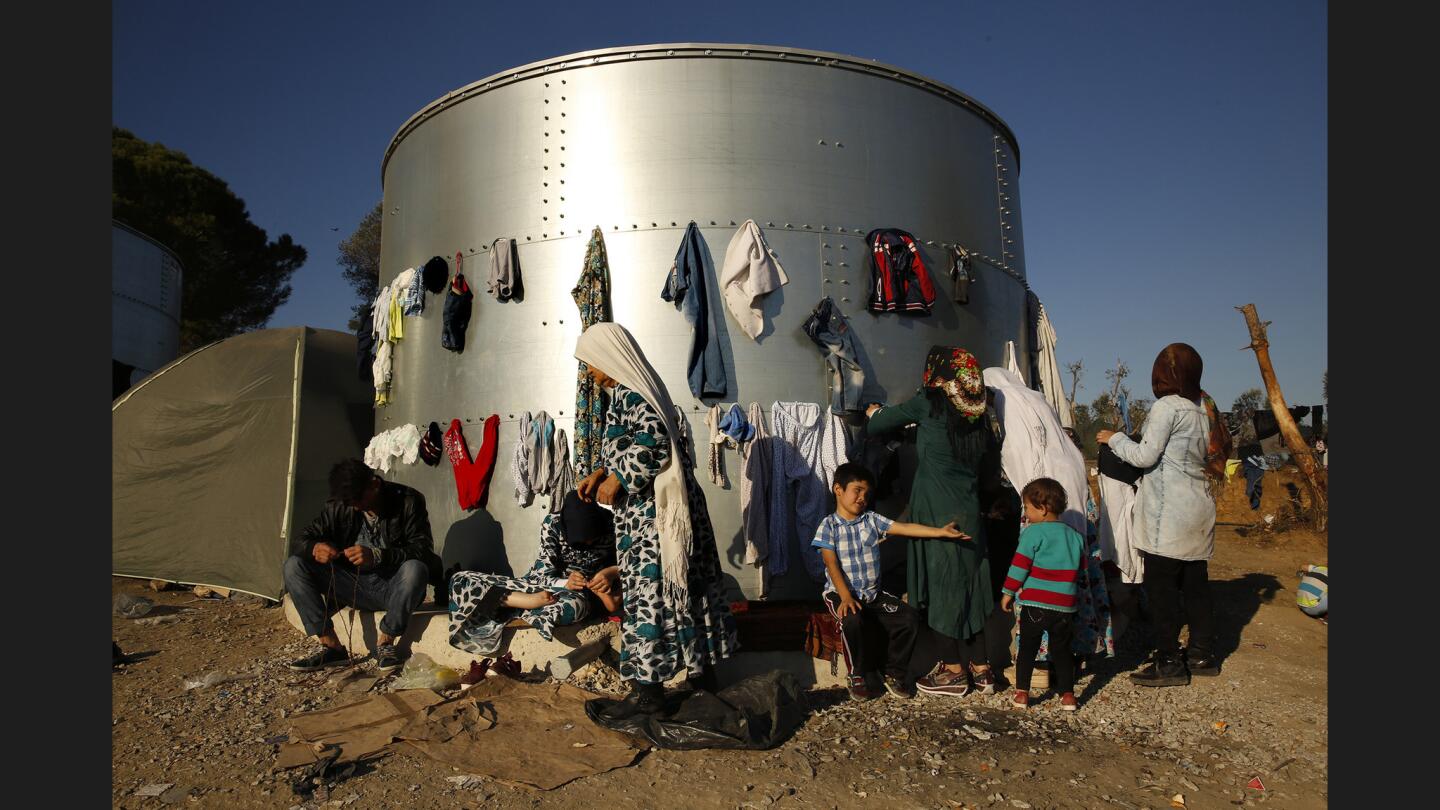
Afghan women hang laundry to dry on a steel drum at the Moria refugee camp on Lesbos, taking the opportunity to wash clothes after days without bathing. Afghans are given lower priority than Syrian refugees. Many travel with little or no money and can’t afford to buy tents or sleeping bags.
(Carolyn Cole / Los Angeles Times)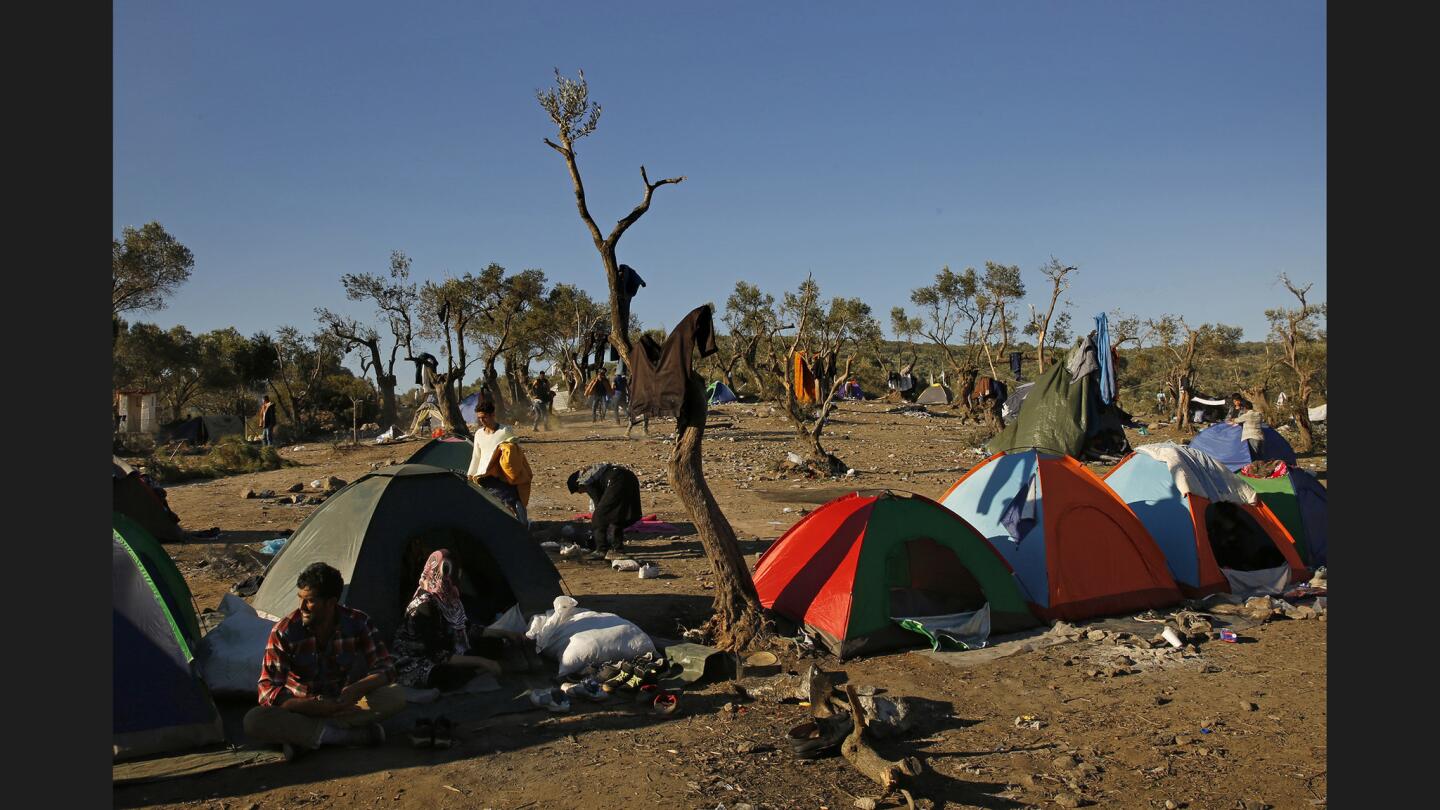
Migrants pitch tents at the Moria refugee camp. The trees have been cut to make campfires at night.
(Carolyn Cole / Los Angeles Times)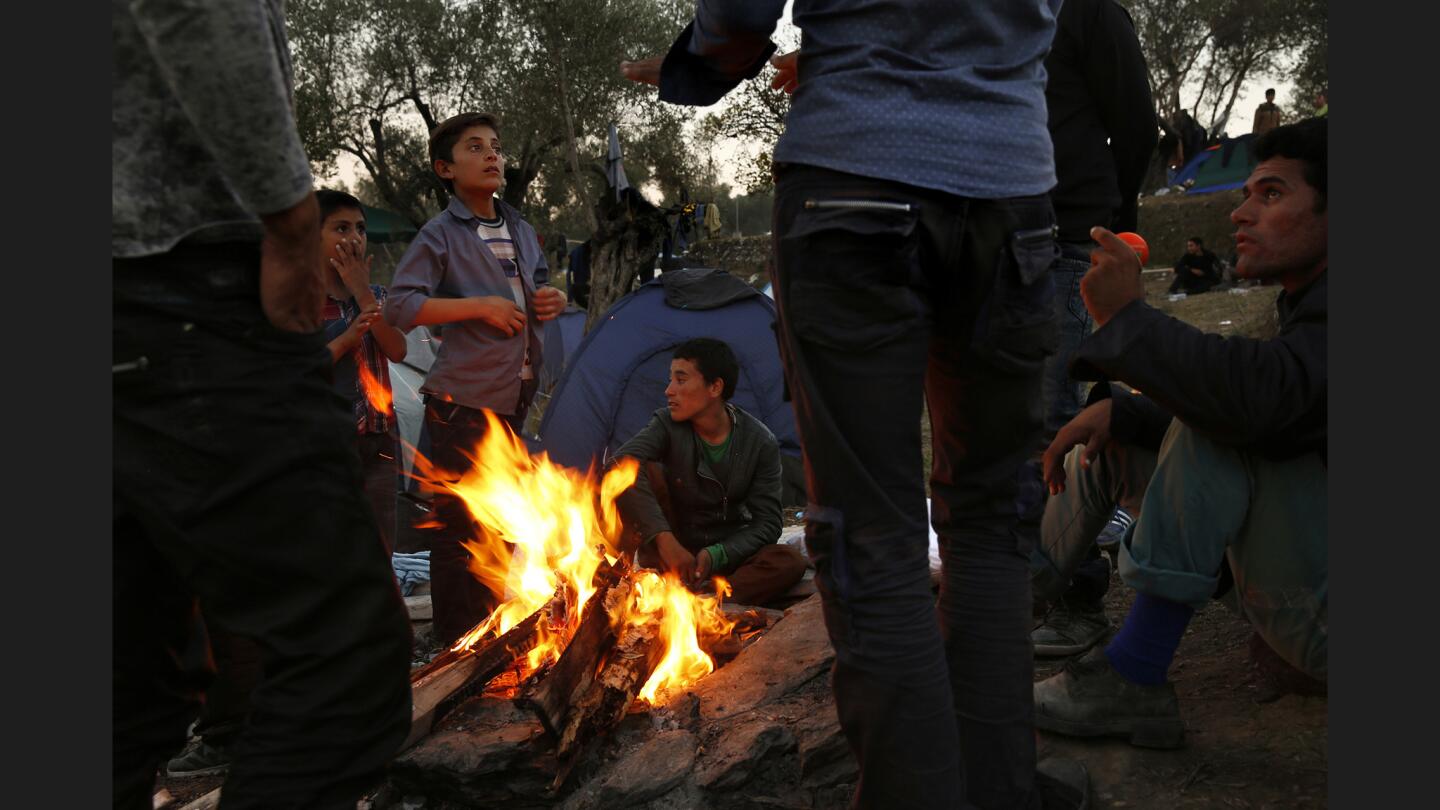
Afghan men and boys gather around a fire at the Moria refugee camp. Most have no tents or sleeping bags, and they must wait days to register their names and receive tickets for the ferry to Athens.
(Carolyn Cole / Los Angeles Times)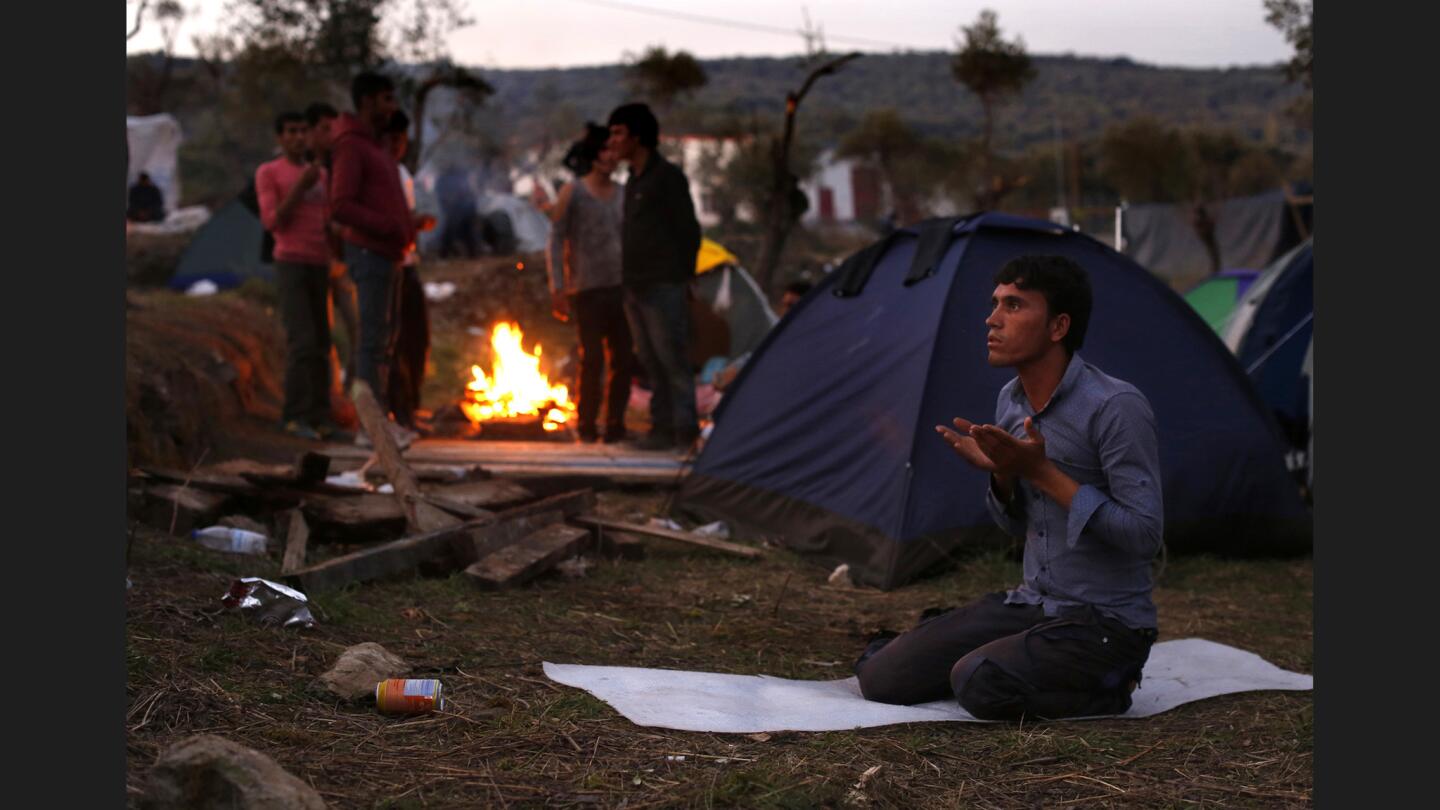
An Afghan man prays at sunset at the Moria camp.
(Carolyn Cole / Los Angeles Times)Advertisement
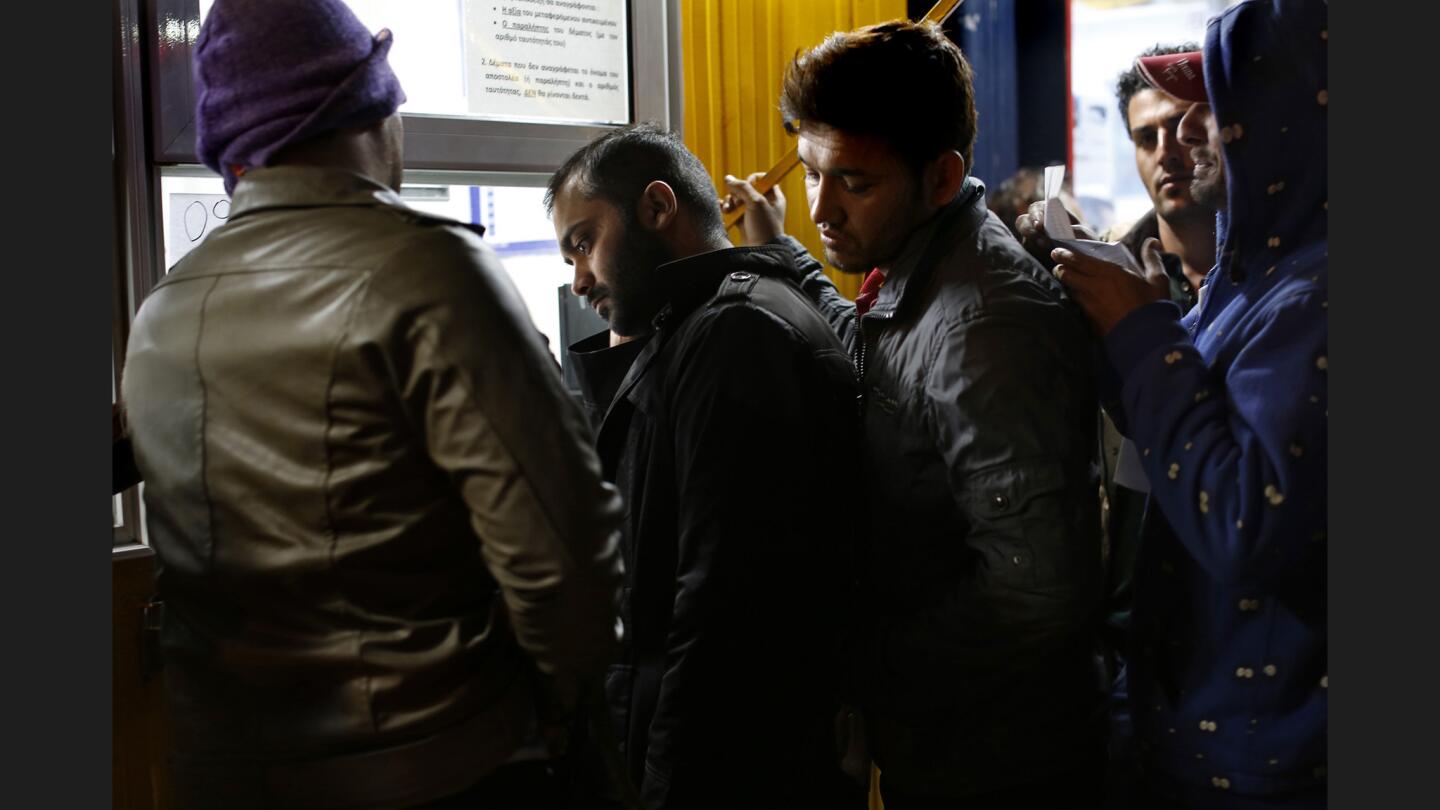
Migrants wait to exchange their ferry tickets after a government strike interrupted their passage from Lesbos to Athens. Those who can’t afford to buy tickets must wait days to register for free tickets.
(Carolyn Cole / Los Angeles Times)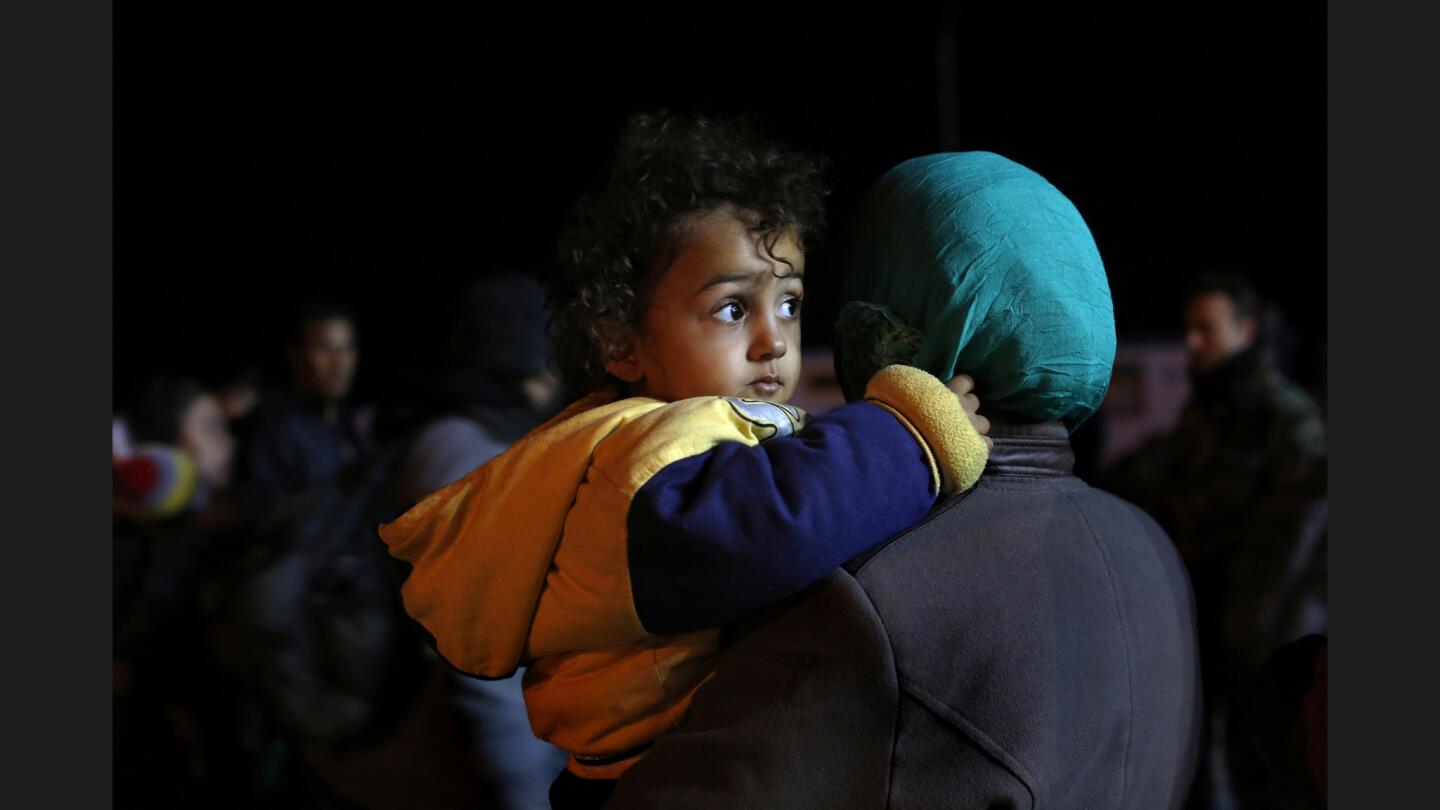
A boy and his mother are among more than 1,000 refugees boarding a ferry to cross from Lesbos to Athens.
(Carolyn Cole / Los Angeles Times)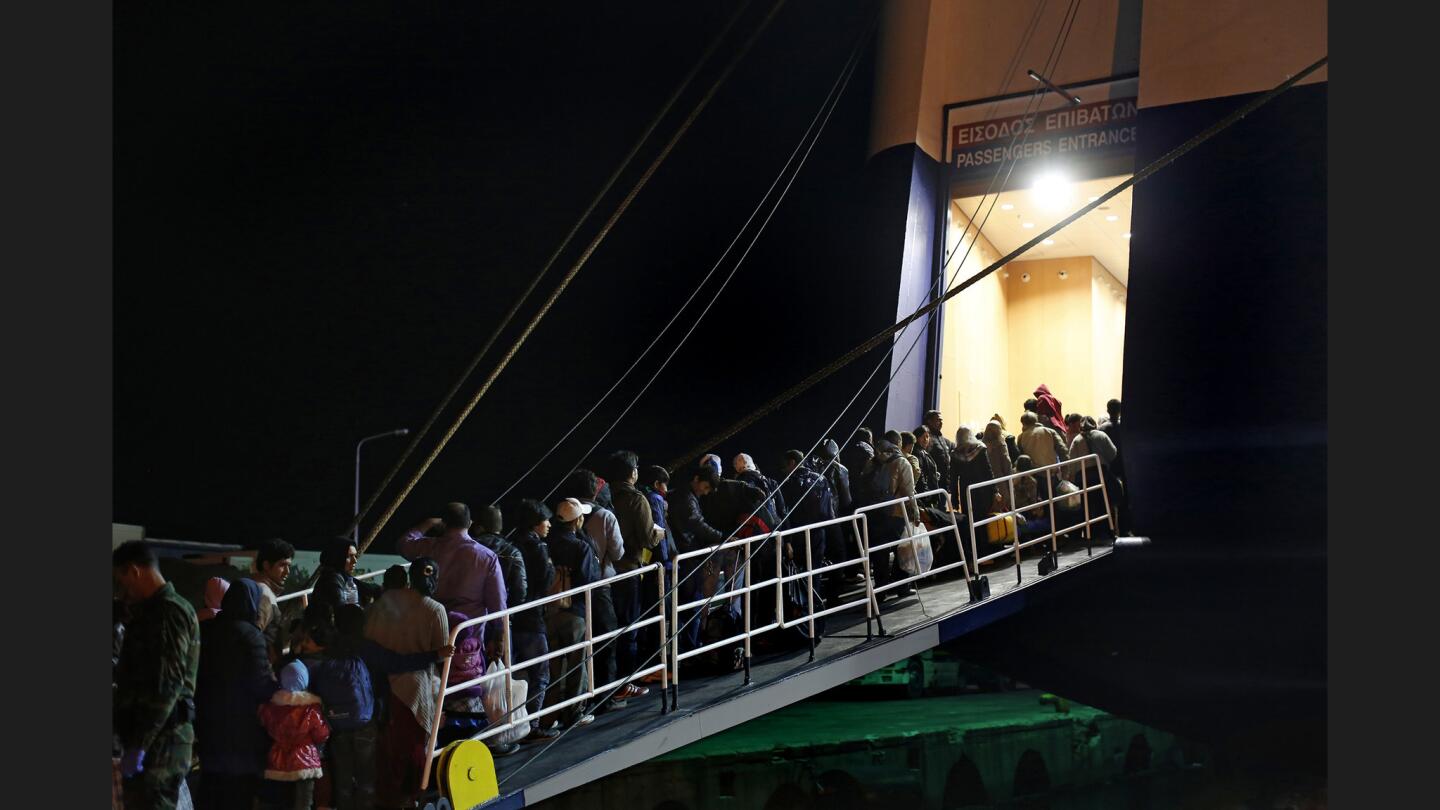
More than 1,000 migrants board a ferry to cross from Lesbos to Athens. Many waited days, living outside before getting a ticket for the crossing.
(Carolyn Cole / Los Angeles Times)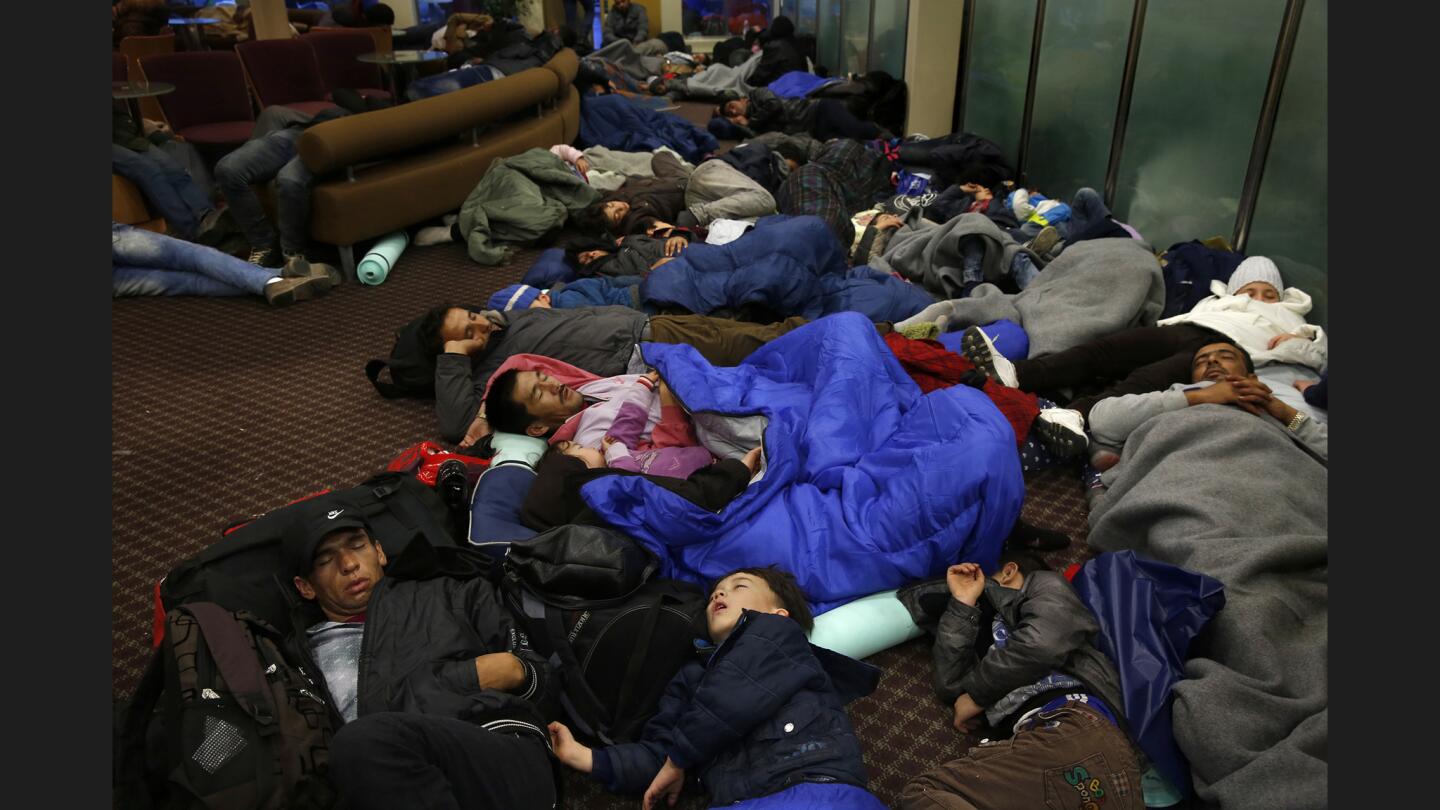
Hundreds of migrants sleep aboard the ferry bound for Athens.
(Carolyn Cole / Los Angeles Times)Advertisement
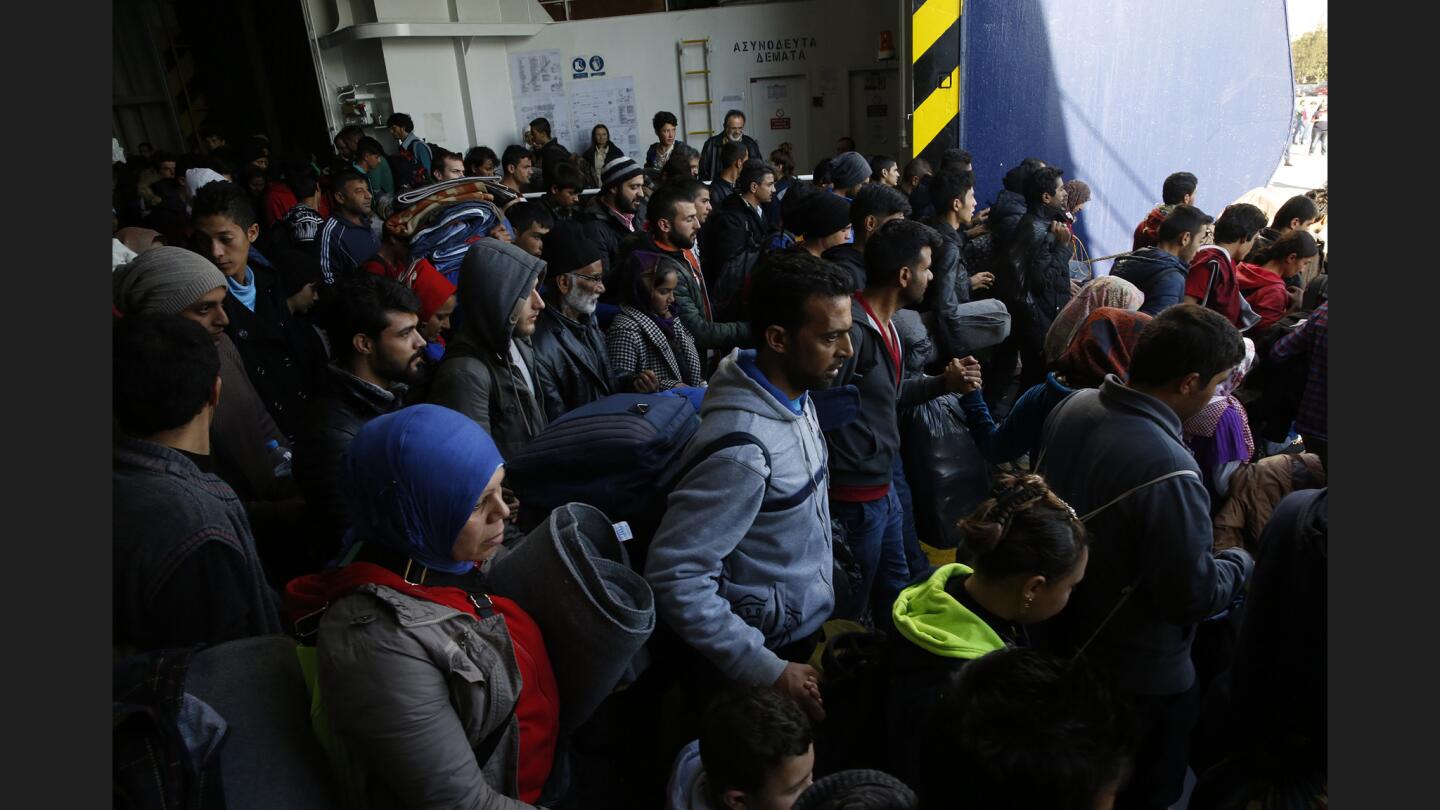
Migrants head for the dock at the port of Athens after crossing from Lesbos. Five ferries a day, each with more than 1,000 aboard, transport migrants to the Greek mainland.
(Carolyn Cole / Los Angeles Times)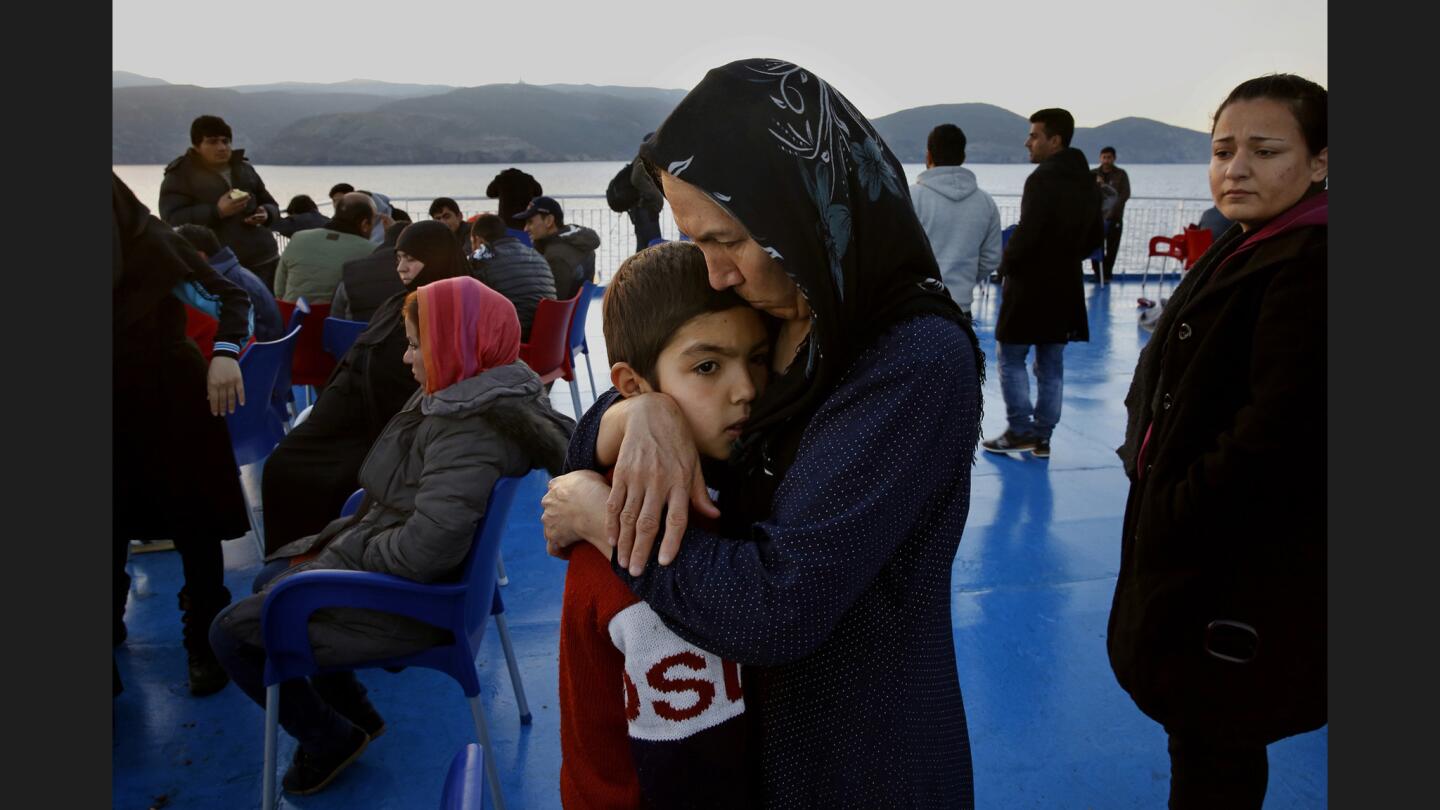
An Afghan woman and her son ride the ferry from Lesbos to Athens, where they will begin the next leg of their journey to resettle in Europe.
(Carolyn Cole / Los Angeles Times)






